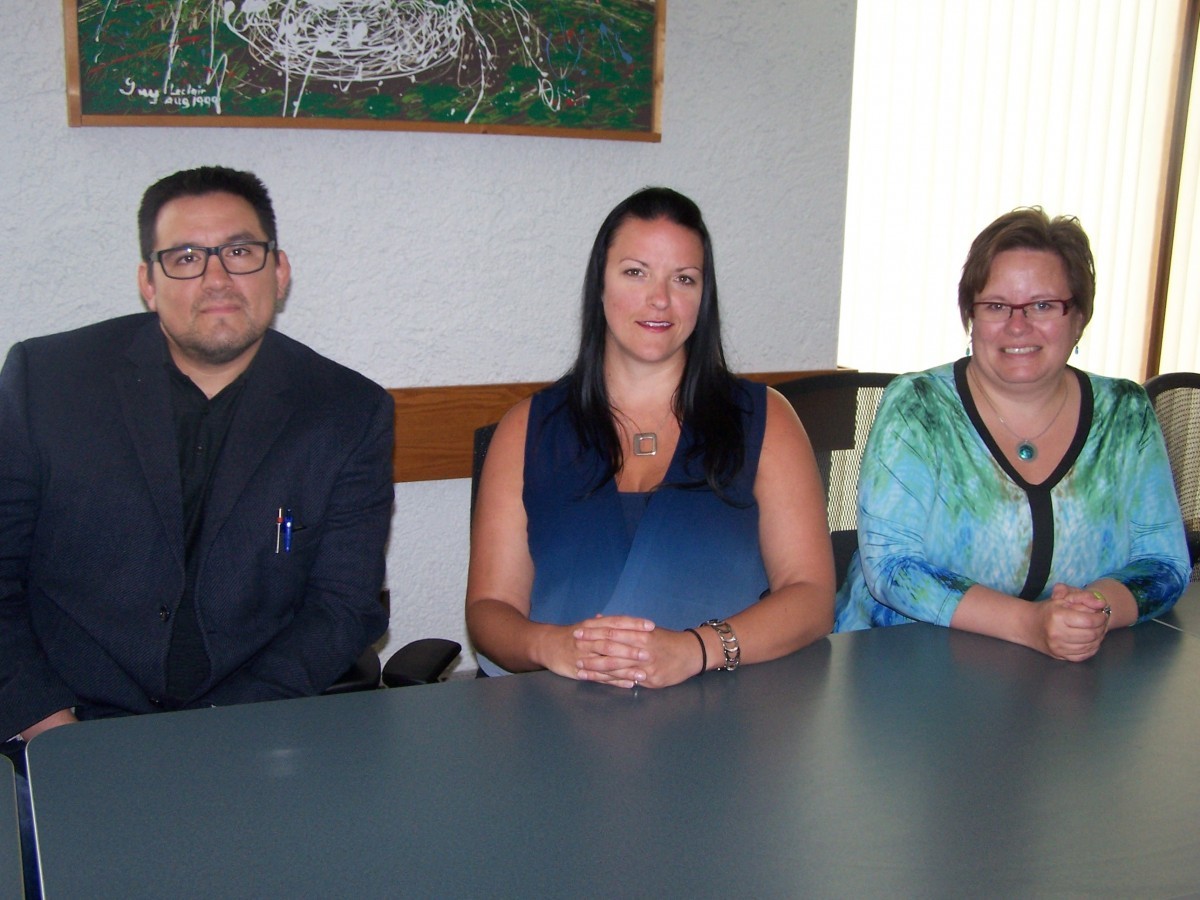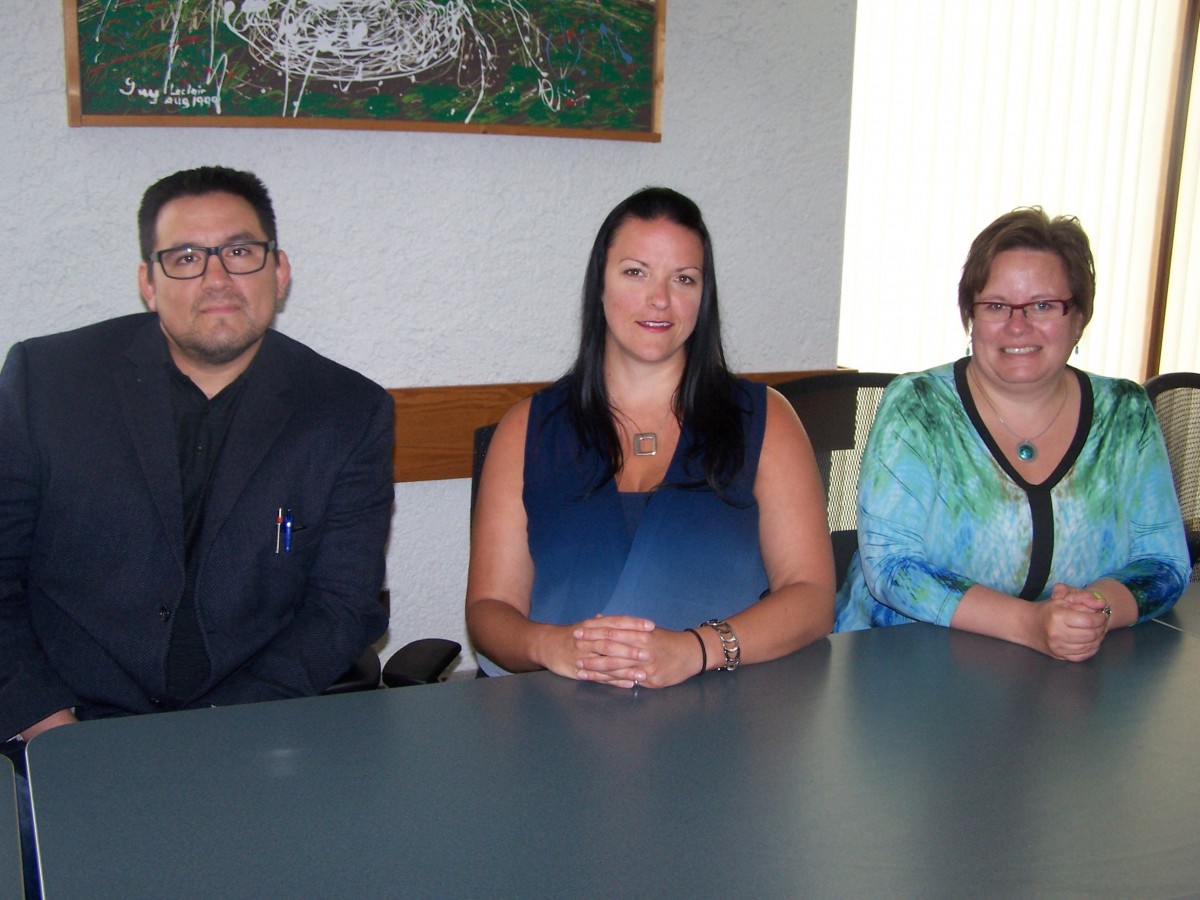
From left, SSHRC Knowledge Synthesis grant recipients Frank Deer, (Education), Amy De Jaeger, (CATL), and Lori Wilkinson (Sociology) hope to use literature review as a 'jumping off point.'
Research into Indigenous students’ post-secondary education experiences receives grant
Knowledge synthesis project to explore existing literature on preparation, access, experiences for Aboriginal students
A collaboration between Education, Sociology and the Centre for the Advancement of Teaching and Learning to gather literature on Aboriginal students’ post-secondary education experiences has been awarded a Social Sciences and Humanities Research Council of Canada (SSHRC) Knowledge Synthesis grant.
The SSHRC has been awarded to Frank Deer, director of Indigenous initiatives and Faculty of Education professor, Lori Wilkinson, professor in the department of sociology and Amy De Jaeger, educational specialist in research in CATL.

From left, SSHRC grant recipients Frank Deer, Education, Amy De Jaeger, CATL, and Lori Wilkinson (Sociology).
“I’m pleased that we’ve received this SSHRC grant to pursue this important work. I believe that skill and knowledge acquisition through post-secondary education is an important dimension of job acquisition for Indigenous peoples as well as for societal betterment in Canada,” says Deer.
The project, entitled Canadian Post-Secondary Education and Aboriginal Peoples of Canada: Preparation, Access, and Relevance of Post-Secondary Experiences, will examine the relevant literature on the participation, access and relevant experiences of Indigenous people in post-secondary (PSE) education. Though most of the literature will be Canadian, Deer says some of the works will be from the United States.
Along with the three principal researchers, there are others helping with the project from several universities as well as some student advisors, Deer says.
“Our intention is to be as responsive as possible to what emerges.”
The purpose of the synthesis project is to look at why Aboriginal people may have challenges in post-secondary learning experiences—looking at everything from historical, social, cultural factors to familial and personal factors.
“While it has been asserted that Canada’s PSE institutions are of high quality and lend to the betterment of Canadian society, these benefits have not necessarily had a positive impact on quality of life for many Indigenous peoples in Canada. Currently, a number of governmental departments as well as PSE institutions have attempted to promote academic and professional programs to recruit and retain indigenous peoples, yet many of these initiatives are limited in scope and primarily focus on employment paths such as social work and education,” Deer writes.
Wilkinson says that while there has been a lot of literature written on the subject, “it’s all over the place,” and the group’s goal is to bring it all together in a document that is also easy for people to understand and read.
“That’s the problem with [some] academic research. A lot of it is so jargon-laden and so complex, and it’s hard to find. It ends up on the shelf. That’s the reason we are doing this—to try to bring things together and to help people.”
She adds that the final report, due in October, will hopefully be a jumping off point for this group on “where do we want to go next.”
Wilkinson says that the recent Truth and Reconciliation Report had numerous recommendations dealing with post-secondary education for Indigenous people.
“Work like this can contribute to some of that discussion.”
She says moving forward, the group hopes that this project will help researchers and post-secondary institutions and colleges explore “what levers do we use to get more Aboriginal students to come to university in the first place, and once they’re here, make the experience more successful and inclusive.”
Research at the University of Manitoba is partially supported by funding from the Government of Canada Research Support Fund.






